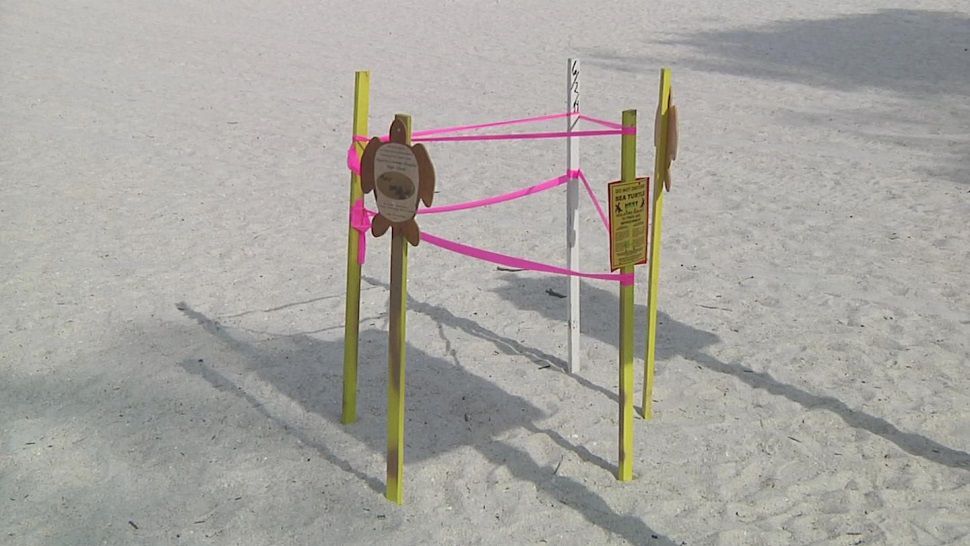ANNA MARIA ISLAND, FLA. -- Sea turtle nests marked with yellow stakes and warning signs are almost as common as beach chairs on Anna Maria Island.
- Sea turtle activists preparing for busy storm season
- Rough surf, excessive rain poses a risk for nests
- RELATED: Learn how to protect turtles
Sea turtle activists have been scrambling to secure nests in Manatee County after days of rain and Subtropical storm Alberto left many eggs at risk--all while preparing for the busy storm season.
"We get a lot of samplings from one mom spread around the beach, so if we have to lose a few to nature, we're good with that," Suzi Fox with the Anna Maria Island Turtle Watch said.
Luckily, just a few nests were lost as Alberto passed by during Memorial Day weekend. And the eggs that were washed away were quickly recovered.
"People were down there watching them and holding on to them, and we were able to relocate each nest," Fox said.
Once they've been displaced by mother nature, it's a toss up if they'll hatch at all, activists said.
"They're really sensitive to rotations, so if they get pulled out into the water and start rolling around, they usually don't survive that," Melissa Bernhard said, a senior biologist at the Mote Marine Laboratory.
Experts say it's rough surf that poses the biggest risk for nests, but excessive rain can slow down the hatching process.
"It cools off the nests more, so the cooler temperatures produce slower chemical reactions, which are really important to development," Bernhard said.
So far this year, there have been more than 115 marked nests on Anna Maria Island. Which means if we get hit with big storms early this hurricane season, it could make for a hard year for sea turtles.
The team with Anna Maria Island Turtle Watch hopes that the eggs get a chance to hatch before one churns up the Gulf.
"Let's hope that those storms are late in September or October," Fox said.
Experts say there are a few things you can do if you see a damaged nest. If you see stakes that are down, bring them directly back to the dune line so they can work to relocate the nest. And if you see eggs rolling in the surf, call the group that oversees the beach.



